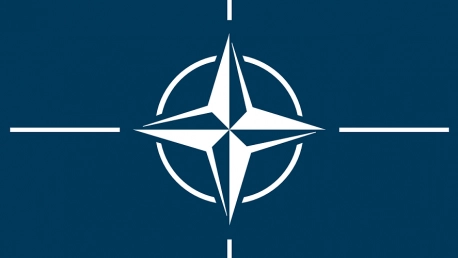More than a month has already passed since President Putin’s Russia has decided to invade the neighboring country of Ukraine, killing and injuring more than 2,500 civilians in the process. Countless lives have been changed dramatically, after more than 6.4 million people have been displaced in Ukraine as a direct result of the war. More than 3.5 million people have left the country to seek refuge in neighboring Poland, Romania, Moldova, Hungary, and others. While the U.S. and other Western allies have imposed extensive economic sanctions on Russia in a joint effort to stop the conflict, little has changed for the people of Ukraine.
As the Russian invasion continues, multiple new problems also seem to appear. Chemical attack worries are now on the rise after Ukraine announced that Russia already “dropped phosphorus bombs” in the region. Concerns about the possible use of chemical or biological weapons, questions regarding China’s role in this crisis and discussions about the real consequences of President Putin’s invasion have all prompted the North Atlantic Treaty Organization (NATO) leaders to meet in Brussels. The main topic on their agenda is how NATO should respond to Russia’s invasion of Ukraine—as well as other future threats.
What President Biden says
While NATO leaders met in Brussels to discuss Russia’s unprovoked invasion of Ukraine, President Joe Biden issued a statement saying that the U.S. and its allies will continue to support Ukraine during this crisis, holding Russia accountable for this cruel war. President Biden promised commitment to fortify the NATO Alliance as well as help Ukrainian President Volodymyr Zelenskyy and his government. Not only did President Biden promise increasing security assistance to Ukraine, but he also mentioned discussions about enhancing NATO’s defense, with particular reference to the Eastern flank.
This statement was made after President Biden expressed concerns about the possibility that Russian President Vladimir Putin was considering using chemical or biological weapons in the invasion of Ukraine. The U.S. President mentioned Vladimir Putin’s suggestion that Western countries should have biological and chemical weapons in Ukraine. “That’s a clear sign he is considering using both of those. He’s already used chemical weapons in the past, and we should be careful of what’s about to come,” President Biden added. He went on to say that the future will bring about a new world order, that America should lead it and unite the rest of the free world in the process.
What NATO leaders say
The Prime Minister of the United Kingdom, Boris Johnson, said his country will provide a new package of support to Ukraine. He went on to congratulate NATO and the G7’s common stance on the crisis, showing support for recent economic, military and diplomatic decisions. The Prime Minister also encouraged his partners to increase their response to Russia’s invasion, including providing Ukraine with new defensive capabilities and increasing economic sanctions against Russia. According to Johnson, Russia’s invasion of Ukraine is already failing, because the Ukrainian people have proved to be determined to protect their country.
NATO leaders seem to support the statements previously made by President Biden and Prime Minister Johnson, saying their meeting took place because of the growing need to address Russia’s aggression against Ukraine. According to the leaders, Russia’s war against Ukraine has ended peace in Europe and is currently leading to human suffering and devastation.“Russia’s attack on Ukraine threatens global security. Its assault on international norms makes the world less safe. President Putin’s escalatory rhetoric is irresponsible and destabilizing,” said the leaders in a joint statement.
NATO’s response
The Ukrainian President appealed to NATO leaders in a virtual call, asking for support as they gathered for the emergency summit in Brussels. Zelenskyy requested enhanced military equipment from NATO—like planes, tanks, multiple launch rocket systems, anti-ship missiles and air defense systems. He went on to say that Ukraine needs more support, and NATO has yet to show what it can do to save lives and prove that it is the most powerful defensive alliance. While the Ukrainian President asked for 1% of NATO’s planes and tanks, its leaders were wary of providing in-depth details about NATO’s future support.
“Today, NATO leaders agreed that we must, and will, provide further support to Ukraine. We will continue to impose unprecedented costs on Russia and we will reinforce Allied deterrence and defense. Leaders approved our four new NATO battle groups in Bulgaria, Hungary, Romania and Slovakia,” NATO Secretary-General Jens Stoltenberg said in a press conference following the meeting. He went on to mention that NATO will continue to provide support to Ukraine, including support against biological, chemical, radiological and nuclear weapons. Stoltenberg further stated that NATO has the important responsibility of making sure that this conflict will not escalate.
“This would be even more dangerous and more devastating,” NATO’s Secretary-General added, as he provided a glimmer of hope to those still expecting that a direct intervention from NATO can be avoided.









